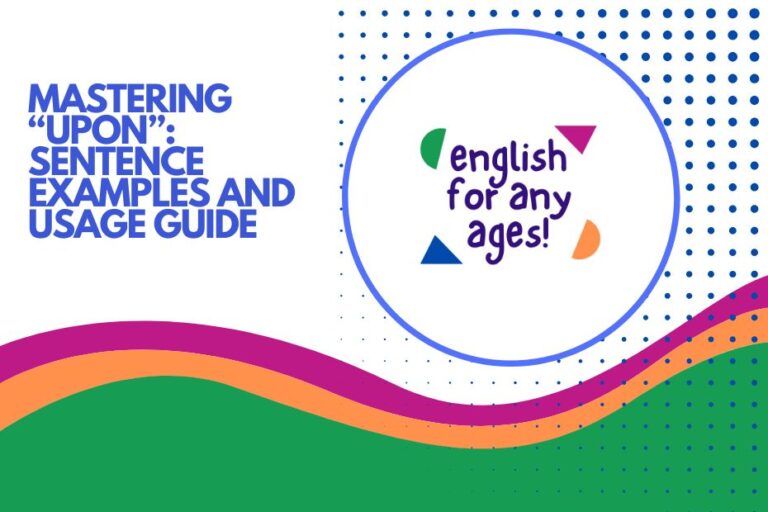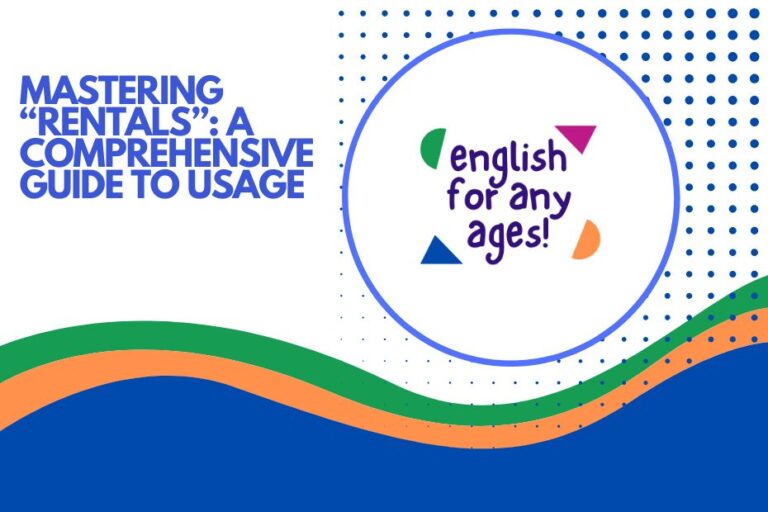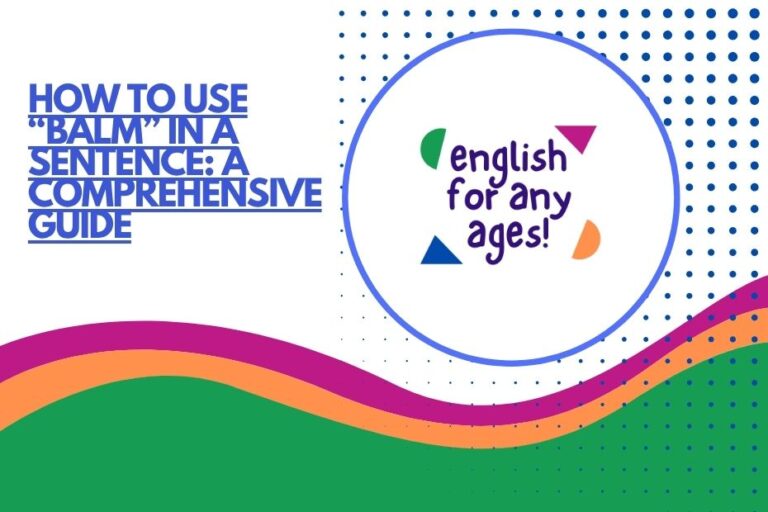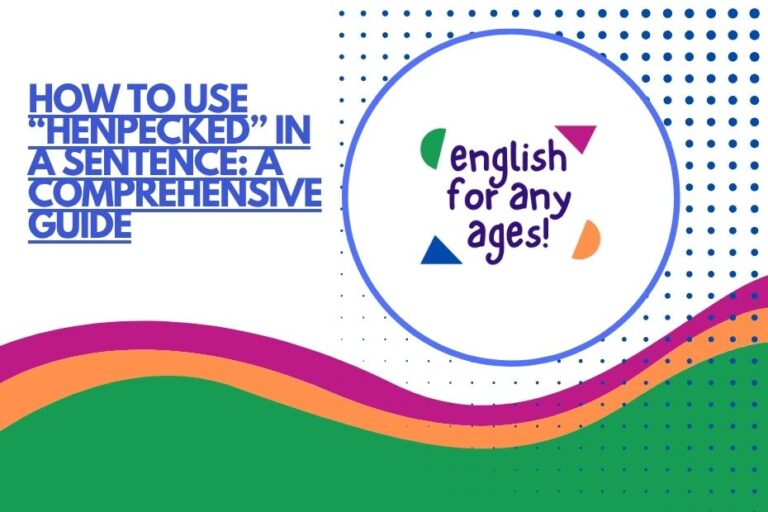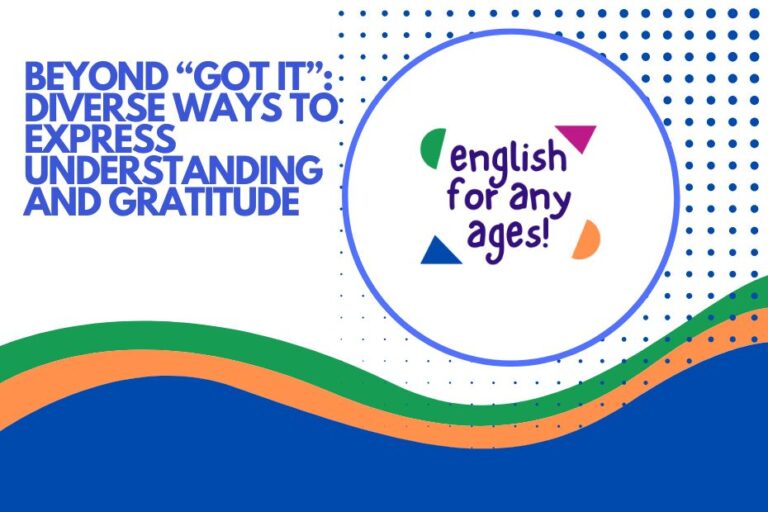Alternative Ways to Say “I Would Like to Bring to Your Attention”
Effective communication is crucial in both professional and personal settings. The phrase “I would like to bring to your attention” is commonly used to introduce important information, but overuse can make your language sound repetitive or overly formal.
This article explores a wide range of alternative phrases that convey the same meaning with varying degrees of formality, directness, and emphasis. Understanding these alternatives will enhance your communication skills, allowing you to express yourself more precisely and engagingly in diverse situations.
This guide is particularly beneficial for students, professionals, and anyone seeking to improve their written and spoken English.
Table of Contents
- Introduction
- Definition and Explanation
- Structural Breakdown
- Types and Categories of Alternatives
- Examples
- Usage Rules
- Common Mistakes
- Practice Exercises
- Advanced Topics
- FAQ
- Conclusion
Definition and Explanation
The phrase “I would like to bring to your attention” is a polite and formal way to introduce a topic or piece of information that you believe is important for the listener or reader to consider. It signals that you are about to present something noteworthy that requires their focus.
This phrase is often used in professional settings, such as emails, reports, and presentations, where clear and respectful communication is essential. The phrase aims to preface information, ensuring the listener is prepared to receive and process it appropriately.
It is generally used to highlight facts, issues, or opportunities.
The phrase functions as an introductory clause, setting the stage for the main point you wish to convey. It creates a sense of anticipation and importance, encouraging the audience to pay close attention to what follows. While effective, its formality can sometimes feel stiff or overly bureaucratic, hence the need for a varied vocabulary of alternatives. Understanding the nuances of these alternatives allows you to tailor your language to the specific context and audience, making your communication more impactful and engaging.
Structural Breakdown
The phrase “I would like to bring to your attention” follows a specific grammatical structure that contributes to its formality and politeness. Breaking down this structure can help you understand how to create similar phrases and appreciate the subtle differences in tone and emphasis.
The structure can be analyzed as follows:
- I: The subject pronoun, indicating the speaker or writer.
- Would like: A conditional form of the verb “to like,” expressing a polite desire or intention.
- To bring: An infinitive verb, indicating the action of presenting or introducing.
- To your attention: A prepositional phrase specifying the recipient of the information (your attention).
The conditional “would like” is key to the phrase’s politeness. It softens the statement, making it less direct than simply saying “I want to bring to your attention.” The infinitive “to bring” further distances the speaker from a forceful assertion, framing the act as a gentle introduction.
The prepositional phrase “to your attention” clearly defines the focus of the message, ensuring the recipient understands that their consideration is being requested.
By understanding this structure, you can manipulate the components to create alternative phrases with different levels of formality and directness. For example, replacing “would like” with “want” makes the statement more direct, while using synonyms for “bring” and “attention” can alter the tone and emphasis.
Types and Categories of Alternatives
There are many different ways to convey the same meaning as “I would like to bring to your attention,” each with its own nuances and suitability for different contexts. Here are some categories of alternatives:
Direct Statements
These alternatives are straightforward and to the point, suitable for situations where brevity and clarity are paramount.
- I want to point out…
- I want to highlight…
- I want to emphasize…
- I want to make you aware of…
Formal Alternatives
These alternatives maintain a professional tone, appropriate for business correspondence, reports, and presentations.
- I wish to draw your attention to…
- I would like to call your attention to…
- It is important to note that…
- Kindly consider…
Informal Alternatives
These alternatives are more casual and conversational, suitable for emails to colleagues, internal communications, and less formal meetings.
- Just wanted to let you know…
- FYI (For Your Information)…
- Thought you should be aware of…
- Heads up…
Question Format
Presenting information as a question can be a less assertive way to introduce a topic, encouraging the recipient to think about it themselves.
- Have you considered…?
- Are you aware of…?
- Did you know that…?
Emphasizing Importance
These alternatives highlight the significance of the information being presented.
- It is crucial to understand that…
- It is essential to consider…
- It is vital to be aware of…
- This is a critical issue…
Softening the Message
These alternatives are useful when delivering potentially negative or sensitive information.
- I feel it’s important to mention…
- It’s worth noting that…
- I thought it might be helpful to know…
- Just a reminder about…
Examples
Here are several examples, categorized by formality and directness. Each table provides numerous alternative phrases, demonstrating the wide range of options available.
The following table presents a variety of direct and straightforward alternatives to “I would like to bring to your attention.” These phrases are suitable for situations where clarity and conciseness are valued.
| Alternative Phrase | Example Sentence |
|---|---|
| I want to point out… | I want to point out that the deadline is next Friday. |
| I want to highlight… | I want to highlight the key findings of the report. |
| I want to emphasize… | I want to emphasize the importance of teamwork. |
| I want to make you aware of… | I want to make you aware of the potential risks involved. |
| Let me point out… | Let me point out that we are running behind schedule. |
| Let me highlight… | Let me highlight the positive feedback we received. |
| Let me emphasize… | Let me emphasize the need for accuracy. |
| Let me make you aware of… | Let me make you aware of the recent policy changes. |
| I need to inform you… | I need to inform you about the meeting cancellation. |
| I must inform you… | I must inform you that your application has been approved. |
| Note that… | Note that all submissions must be in by midnight. |
| Consider this… | Consider this a warning about future performance. |
| Be aware that… | Be aware that the system will be down for maintenance. |
| Please note… | Please note the changes to the agenda. |
| Take note of… | Take note of the new safety protocols. |
| Remember that… | Remember that punctuality is expected. |
| Keep in mind… | Keep in mind the budget constraints. |
| Don’t forget… | Don’t forget to submit your timesheets. |
| It should be noted that… | It should be noted that attendance is mandatory. |
| I’d like to add that… | I’d like to add that we appreciate your hard work. |
| I’d like to mention… | I’d like to mention the upcoming training session. |
| I want to remind you… | I want to remind you about the code of conduct. |
| I should mention… | I should mention that there will be a guest speaker. |
| Also, I wanted to say… | Also, I wanted to say that your contribution was invaluable. |
| I’d like to say… | I’d like to say that I support this initiative. |
| A quick reminder about… | A quick reminder about the upcoming holiday. |
| Important to remember… | Important to remember to back up your data. |
The following table showcases formal alternatives suitable for professional correspondence and presentations. These phrases maintain a respectful and polished tone.
| Alternative Phrase | Example Sentence |
|---|---|
| I wish to draw your attention to… | I wish to draw your attention to the discrepancies in the financial report. |
| I would like to call your attention to… | I would like to call your attention to the revised project timeline. |
| It is important to note that… | It is important to note that the new regulations will take effect next month. |
| Kindly consider… | Kindly consider the implications of this decision. |
| Please be advised that… | Please be advised that access to the building will be restricted. |
| It is essential to recognize… | It is essential to recognize the contributions of our volunteers. |
| I must inform you of… | I must inform you of the changes to the company policy. |
| I am writing to inform you of… | I am writing to inform you of the upcoming conference. |
| It is my duty to inform you of… | It is my duty to inform you of the potential risks involved. |
| I am compelled to bring to your attention… | I am compelled to bring to your attention the ethical concerns raised. |
| It is imperative that you understand… | It is imperative that you understand the severity of the situation. |
| I feel obligated to inform you of… | I feel obligated to inform you of the potential consequences. |
| It is vital that you are aware of… | It is vital that you are aware of the latest developments. |
| I am obliged to report that… | I am obliged to report that there has been a security breach. |
| It is my responsibility to notify you of… | It is my responsibility to notify you of the change in leadership. |
| I am required to inform you of… | I am required to inform you of the new reporting procedures. |
| It is necessary to acknowledge… | It is necessary to acknowledge the shortcomings of the current system. |
| I am duty-bound to communicate… | I am duty-bound to communicate the concerns raised by the stakeholders. |
| It is a matter of importance that you know… | It is a matter of importance that you know about the potential delays. |
| I consider it my duty to mention… | I consider it my duty to mention the potential conflicts of interest. |
| Permit me to point out… | Permit me to point out the inaccuracies in the data. |
| Allow me to highlight… | Allow me to highlight the areas where we have exceeded expectations. |
| I respectfully submit that… | I respectfully submit that the proposed solution is not feasible. |
| It is with utmost importance that I convey… | It is with utmost importance that I convey the urgency of the matter. |
| I am writing to apprise you of… | I am writing to apprise you of the current status of the project. |
| It is incumbent upon me to inform you… | It is incumbent upon me to inform you of the legal ramifications. |
The table below presents informal alternatives suitable for casual communication among colleagues or in less formal settings. These phrases are more relaxed and conversational.
| Alternative Phrase | Example Sentence |
|---|---|
| Just wanted to let you know… | Just wanted to let you know that the meeting has been rescheduled. |
| FYI (For Your Information)… | FYI, the office will be closed on Monday. |
| Thought you should be aware of… | Thought you should be aware of the traffic delays downtown. |
| Heads up… | Heads up, there’s a fire drill scheduled for tomorrow. |
| Just so you know… | Just so you know, the printer is out of ink. |
| By the way… | By the way, I finished that report you asked for. |
| Quick note about… | Quick note about the new software update. |
| A little reminder… | A little reminder about the team lunch next week. |
| Just a heads-up… | Just a heads-up, the CEO will be visiting our department. |
| Wanted to mention… | Wanted to mention that I’ll be out of the office next Friday. |
| In case you didn’t know… | In case you didn’t know, the deadline has been extended. |
| Something to keep in mind… | Something to keep in mind: parking is limited. |
| Just a reminder that… | Just a reminder that the dress code is business casual. |
| Quick FYI… | Quick FYI, the coffee machine is broken. |
| Just letting you know… | Just letting you know that I’ve submitted the proposal. |
| Friendly reminder… | Friendly reminder about our team meeting tomorrow. |
| Just a quickie… | Just a quickie to let you know that the Wi-Fi is down. |
| Wanted to give you a shout… | Wanted to give you a shout about the positive feedback on your presentation. |
| Just wanted to flag this up… | Just wanted to flag this up – there’s an error in the spreadsheet. |
| Just so you’re in the loop… | Just so you’re in the loop, we’re having a team-building event next month. |
| FYSA (For Your Situational Awareness)… | FYSA, there will be road closures due to the marathon. |
| Thought I’d share… | Thought I’d share this interesting article I found. |
| Just a quick note… | Just a quick note to say thanks for your help. |
| I wanted to tell you… | I wanted to tell you about the new project we’re starting. |
| I wanted to share… | I wanted to share my thoughts on the presentation. |
| Here’s a thought… | Here’s a thought: maybe we should consider a different approach. |
| A little something for you to think about… | A little something for you to think about: the impact of our decisions. |
The following table provides examples of phrasing information in the form of a question. This approach can be less assertive and more engaging, inviting the recipient to consider the information actively.
| Alternative Phrase | Example Sentence |
|---|---|
| Have you considered…? | Have you considered the alternative solutions? |
| Are you aware of…? | Are you aware of the new regulations? |
| Did you know that…? | Did you know that the company is offering tuition reimbursement? |
| Have you thought about…? | Have you thought about the long-term implications? |
| Were you aware that…? | Were you aware that the system will be down for maintenance tonight? |
| Do you realize…? | Do you realize the potential impact of this decision? |
| Are you familiar with…? | Are you familiar with the new software updates? |
| Have you taken into account…? | Have you taken into account the budget constraints? |
| Is it clear that…? | Is it clear that attendance is mandatory? |
| Can I ask if you’ve considered…? | Can I ask if you’ve considered the ethical implications? |
| I wonder if you’re aware of…? | I wonder if you’re aware of the upcoming changes. |
| Have you had a chance to look at…? | Have you had a chance to look at the proposal? |
| Are you up to speed on…? | Are you up to speed on the latest market trends? |
| Have you been informed about…? | Have you been informed about the new safety protocols? |
| Are you cognisant of the fact that…? | Are you cognisant of the fact that the deadline is approaching? |
| Is it your understanding that…? | Is it your understanding that the project is on track? |
| Do you happen to know…? | Do you happen to know if the meeting has been cancelled? |
| Would you happen to know…? | Would you happen to know the status of the application? |
| I was wondering if you knew…? | I was wondering if you knew about the company picnic. |
| Just curious if you’ve heard about…? | Just curious if you’ve heard about the new partnership. |
| Out of interest, are you aware…? | Out of interest, are you aware of the potential risks? |
| Might you be familiar with…? | Might you be familiar with the latest research? |
| I’m just checking if you’ve heard about…? | I’m just checking if you’ve heard about the upcoming conference. |
| Are you possibly aware of…? | Are you possibly aware of the budget cuts? |
| I was just wondering if you knew about…? | I was just wondering if you knew about the volunteer opportunities. |
| Just a quick question: are you aware of…? | Just a quick question: are you aware of the new policy changes? |
| I don’t suppose you’d know…? | I don’t suppose you’d know if the report is finished? |
Usage Rules
When choosing an alternative to “I would like to bring to your attention,” consider the following usage rules:
- Formality: Match the level of formality to the audience and context. Formal alternatives are best for professional settings, while informal alternatives are suitable for casual communication.
- Directness: Choose a level of directness that aligns with your communication style and the sensitivity of the information. Direct statements are clear and concise, while indirect questions can be less assertive.
- Emphasis: Use alternatives that emphasize the importance of the information if necessary. Phrases like “It is crucial to understand” or “It is essential to consider” can highlight the significance of the topic.
- Clarity: Ensure that your chosen alternative is clear and unambiguous. Avoid jargon or overly complex language that could confuse the recipient.
- Audience: Consider your audience’s cultural background and communication preferences. Some cultures may prefer more formal or indirect language.
- Purpose: Think about the purpose of your message. Are you informing, persuading, or requesting action? Choose an alternative that aligns with your objective.
Common Mistakes
Here are some common mistakes to avoid when using alternatives to “I would like to bring to your attention”:
| Incorrect | Correct | Explanation |
|---|---|---|
| “Heads up, I require you to complete this task immediately.” | “Heads up, please complete this task as soon as possible.” | Using an informal phrase like “Heads up” with a demanding tone is inappropriate. |
| “FYI, it is vital that you understand the implications of this decision.” | “It is vital that you understand the implications of this decision.” | Mixing an informal abbreviation like “FYI” with a formal phrase is inconsistent. |
| “I want to bring to your attention the thing about the report.” | “I want to bring to your attention the inaccuracies in the report.” | Vague language should be avoided. Be specific about what you are referring to. |
| “Just wanted to let you know, I am writing to inform you…” | “I am writing to inform you…” | Avoid redundancy. Choose one introductory phrase, not both. |
| “Did you know that the sky is blue?” (when it’s irrelevant) | “Did you know that the new policy affects your department?” | Ensure the information is relevant and important to the recipient. |
Practice Exercises
Test your understanding with these practice exercises. Choose the best alternative to “I would like to bring to your attention” for each scenario.
| Question | Options | Answer |
|---|---|---|
| You are sending an email to your manager about a critical project delay. | a) Heads up… b) I wish to draw your attention to… c) Just wanted to let you know… | b) I wish to draw your attention to… |
| You are casually reminding a colleague about an upcoming team lunch. | a) It is important to note that… b) Just a reminder that… c) I am writing to inform you of… | b) Just a reminder that… |
| You are presenting important financial data to the board of directors. | a) FYI… b) I want to point out… c) It is crucial to understand that… | c) It is crucial to understand that… |
| You are informing a client about a change in your company’s policy. | a) Just so you know… b) Please be advised that… c) Thought you should be aware of… | b) Please be advised that… |
| You are reminding your team about a mandatory training session. | a) A little reminder… b) I am required to inform you of… c) I was wondering if you knew…? | b) I am required to inform you of… |
| You are speaking to a colleague about a potential problem with a new software. | a) Have you considered…? b) I must inform you of… c) Just a heads-up… | c) Just a heads-up… |
| You are writing a formal complaint to a customer service department. | a) I’m just checking if you’ve heard about…? b) I am compelled to bring to your attention… c) Quick note about… | b) I am compelled to bring to your attention… |
| You are sending a quick email to your team about a change in meeting location. | a) Quick FYI… b) It is incumbent upon me to inform you… c) I respectfully submit that… | a) Quick FYI… |
| You are in a meeting and want to casually mention a relevant research finding. | a) Thought I’d share… b) It is my responsibility to notify you of… c) Permit me to point out… | a) Thought I’d share… |
| You are writing a report about a significant environmental issue. | a) Heads up… b) It is vital that you are aware of… c) I wanted to tell you… | b) It is vital that you are aware of… |
Advanced Topics
For advanced learners, consider the following more complex aspects:
- Subtleties of Tone: Explore how slight variations in wording can significantly impact the tone of your message. For example, “I feel it’s important to mention” is softer than “It is imperative that you understand.”
- Cultural Sensitivity: Research how different cultures perceive directness and formality in communication. Adapt your language to suit the cultural norms of your audience.
- Rhetorical Devices: Incorporate rhetorical devices, such as metaphors and analogies, to make your message more engaging and memorable.
- Contextual Appropriateness: Analyze how the specific context of your communication influences the choice of language. Consider factors such as the relationship between the speaker and the audience, the purpose of the message, and the overall tone of the communication.
- Strategic Communication: Use language strategically to achieve specific goals. For example, you might use a more direct approach when seeking immediate action or a more indirect approach when delivering sensitive information.
FAQ
- Why is it important to use alternatives to “I would like to bring to your attention”?
Using a variety of phrases makes your communication more engaging and less repetitive. It also allows you to tailor your language to the specific context and audience, enhancing clarity and impact.
- How do I choose the right alternative for a specific situation?
Consider the formality of the setting, the directness required, the importance of the information, and your audience’s preferences. Choose an alternative that aligns with these factors to ensure effective communication.
- What is the difference between formal and informal alternatives?
Formal alternatives are suitable for professional settings and maintain a respectful tone. Informal alternatives are more casual and conversational, appropriate for communication with colleagues or in less formal environments.
- Can I use question formats to introduce information?
Yes, presenting information as a question can be a less assertive and more engaging way to introduce a topic, encouraging the recipient to think about it themselves.
- How can I emphasize the importance of the information I’m presenting?
Use alternatives that highlight the significance of the information, such as “It is crucial to understand” or “It is essential to consider.”
- What should I do if I need to deliver potentially negative or sensitive information?
Use alternatives that soften the message, such as “I feel it’s important to mention” or “It’s worth noting that.” This can help to mitigate any negative reactions.
- Are there any cultural considerations when choosing an alternative?
Yes, different cultures have different communication preferences. Some cultures may prefer more formal or indirect language, while others may value directness and brevity. It’s important to be aware of these cultural differences and adapt your language accordingly.
- Where can I find more examples of these alternatives in use?
Pay attention to how native English speakers use language in various contexts, such as business emails, presentations, and casual conversations. You can also find examples in books, articles, and online resources.
Conclusion
Mastering alternative ways to say “I would like to bring to your attention” is a valuable skill that enhances your communication effectiveness. By understanding the nuances of formality, directness, and emphasis, you can tailor your language to suit any situation.
Remember to consider your audience, the context, and the purpose of your message when choosing an alternative. Practice using these phrases in your daily communication to improve your fluency and confidence.
By incorporating these alternatives into your vocabulary, you will not only sound more professional and engaging but also become a more effective communicator overall. Continue to explore and experiment with different phrases to find what works best for you and your specific communication needs.
Enhance your communication skills by actively listening to native speakers and observing their language choices in various contexts. This will help you develop a more nuanced understanding of English and improve your ability to express yourself clearly and effectively.

